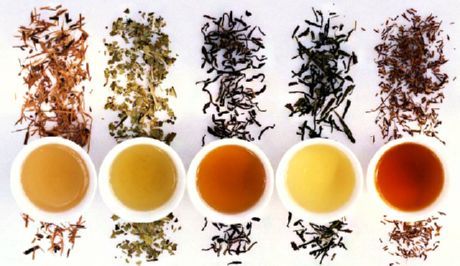The whole truth about the benefits of tea
Last reviewed: 22.11.2021

All iLive content is medically reviewed or fact checked to ensure as much factual accuracy as possible.
We have strict sourcing guidelines and only link to reputable media sites, academic research institutions and, whenever possible, medically peer reviewed studies. Note that the numbers in parentheses ([1], [2], etc.) are clickable links to these studies.
If you feel that any of our content is inaccurate, out-of-date, or otherwise questionable, please select it and press Ctrl + Enter.
The benefits of tea are surely heard by many, because of its healing properties are told from the TV screens, numerous studies and experts discover all the new properties of this drink - and all this is in our ears. It is believed that tea lowers the level of cholesterol and even struggles with cancer. But is this really so, and to what extent are these statements true?
Sometimes it seems that tea is a real magic elixir of health, youth and energy. It can have a beneficial effect on the work of the heart, it is used as a preventive measure against diabetes and dementia, as well as the development of malignant tumors. Indeed, one can not argue with the fact that tea contains antioxidants that help to fight many diseases, and this is promising, because the advertisers are not stingy in their praise for an invigorating drink and with all the might of its useful properties. However, researchers are barely keeping pace at such rates, and are not in a position to provide an account of the real possibilities of tea.
What is the secret of the unprecedented popularity of tea?
First, it should be noted that if scientists talk about tea, they mean only green, black, white and red tea. All these types of tea are made from the leaves of a plant called Camellia sinensis. Chamomile, herbal or mint tea are tinctures and do not technically refer to teas.
All four of the above types of tea differ from each other in the degree of maturity of the leaves and the way they are prepared. For the preparation of black tea, wilted, oxidized leaves are used - that is, the chemical elements that make up the leaf have not changed under the influence of air. Green tea is prepared by drying the leaves, but in this case they are not oxidized. Red tea (oolong) is partially oxidized and dried, and white is not subjected to these processes at all.

Each of these types of tea is a source of polyphenol, an antioxidant that protects cells from damage to DNA that provokes cancer and other diseases. That is why tea has become a very popular drink for studying and researching its new beneficial properties. Specialists are trying to find out how powerful the chemical potential is in tea and what part of it has an antiviral effect.
Read also: Green tea improves the quality of life in old age
Most researchers turned their attention to black and green tea. The level of their consumption around the world is 75%, it is very fond of the Japanese and the Chinese.
Read also: Green tea will save from breast cancer
In green tea, especially many antioxidants. Specialists distinguish kakhetin - a kind of polyphenol and its subspecies - epigallocatechin-3-gallate. This explains its popularity among scientists and, as a result, people hear about the benefits of green tea more than black.
Myths and speculation
A large-scale analysis of 51 studies, the object of which was green tea, confirms that this drink, when consumed 3-5 times a day, can reduce the risk of prostate cancer and lung, ovaries and rectum, but breast cancer has no influence.
Read also: Green tea - fuel for the brain
As for black tea, the researchers point out that "most likely" it can reduce the risk of developing ovarian cancer and "can be" effective as a preventative for cancer of the rectum and stomach.
Experts agree that a few cups of tea a day will not harm and will probably help in the fight against diseases, especially if you are trying to limit the consumption of caffeine. But if a person leads an unhealthy lifestyle and has bad habits, then one should not hope that after drinking a cup of tea, he will protect himself and be cured of all diseases.
